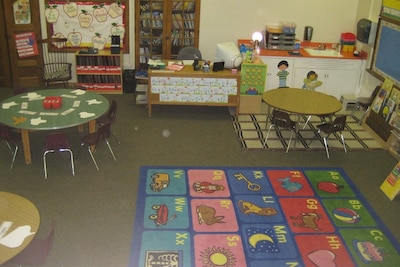Q: What factors should I consider in deciding whether to send my summer-birthday child to kindergarten at age five or age six?

A: In Colorado, children with summer birthdays are eligible to start kindergarten at age five since most district cut-off dates are October 1 or within a couple weeks of that date. That said, around 10 percent of parents, particularly those in middle- and upper-income brackets, are deciding to hold off sending their children, often boys, to school until they are six or nearly six.
Reasons for this trend, often called “academic redshirting,” range widely, but often stem from a parent’s sense that a child is immature, physically small, shy or unprepared for today’s more rigorous kindergarten curriculum. Some parents believe the extra year will simply give their child an academic leg up in kindergarten and beyond. Others make the decision as they look ahead to the middle and high school years, believing that the extra year will give their children athletic or social advantages.
Sharon Triolo-Moloney, director of the Office of Early Learning and School Readiness at the Colorado Department of Education, said, “This question is a constant. It comes up all the time and has for years.”
Experts as well as research studies say that peer pressure among parents often drives the trend, with parents opting to hold their summer birthday child out as they hear of friends and acquaintances doing the same thing. Research on academic redshirting and changing kindergarten cut-off dates has generally found that the oldest students in a class show higher achievement than the youngest. This holds true in kindergarten, first and second grade, but by third grade, the difference fades away. In other words, the academic boost that parents seek by delaying kindergarten entry is usually temporary.
Other research on the topic has found:
- Although boys are redshirted more often, several studies have found no difference in kindergarten readiness between boys and girls.
- Reading and math abilities of children in kindergarten increase much more quickly than if kindergarten entry was delayed a year.
- One study found that having older peers actually benefits younger classmates, raising their test scores, SAT/ACT-taking rates, and reducing the likelihood of retention in subsequent grades.
- Some studies have found that children who start kindergarten a year younger than their peers have a higher probability of repeating kindergarten, first or second grade.
- Some studies have found that redshirted children are less motivated and don’t perform as well in high school.
Lucy Davis, early childhood coordinator for Denver Public Schools, said parents who are considering holding their children out of kindergarten should carefully examine the reasons why. She said the school environment may be just the thing for children who are considered immature, facilitating significant social growth by the end of kindergarten. In addition, physically smaller children with a well-attuned teacher may learn critical social-emotional skills in school that will help them handle issues arising with physically bigger peers.
Davis said parents who opt to wait until their child is six to start kindergarten should also think carefully about what opportunities for learning and stimulation they will be providing during a critical year of childhood. “What are you going to do to provide growth and development for that growing brain?”
Both Davis and Triolo-Moloney also emphasize the importance of ensuring that schools are ready and willing to meet the needs of the incoming student, even if they are on the young end of the spectrum. Both say it is normal for there to be wide variation in the skills and strengths of incoming kindergarteners and many kindergarten teachers are well-equipped to deal with that diversity.
“The real issue is the program should be ready for that child,” said Triolo-Moloney. “Our systems, especially when our kids are youngest, really need to be responsive to their needs.”
Triolo-Moloney and Davis recommend contacting the future school to ask questions or discuss concerns. “The more you know, it’s much easier to make a decision,” said Triolo Moloney.
Davis suggests parents visit kindergarten classrooms the year before their child is set to attend, though she cautioned that parents visiting in the spring should remember that the students they’re observing have six months of school under their belts so will probably be more advanced and mature than their own child. Davis said parents should see happy, engaged students who have the opportunity to move around to “centers,” work in small groups and use creativity in their classwork. Red flags include classrooms that are dead silent, lots of photocopied worksheets, work that looks the same for every student and children sitting for more than 10 minutes at a time.
About our First Person series:
First Person is where Chalkbeat features personal essays by educators, students, parents, and others trying to improve public education. Read our submission guidelines here.
